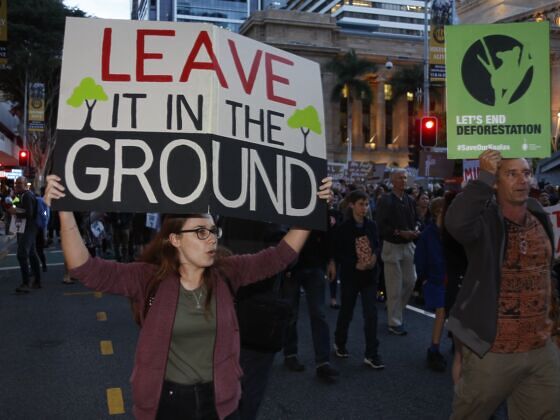Even as China and the United States, the world’s biggest energy guzzlers, move away from carbon-belching coal, Australia has shown it is hell-bent on mining it.
The federal government announced Thursday it had approved a proposal by Indian mining company Adani to build one of the world’s biggest coal mines in the northern state of Queensland.
The $12 billion Carmichael project involves an open-cut and underground mine covering an area five times the size of Sydney Harbor, making it the largest coal mine in Australia.
